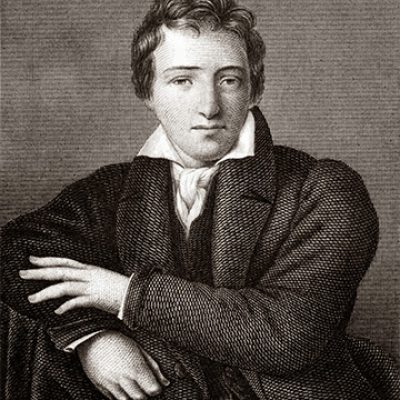Heinrich Heine
Few artists had generated so much love and hate among their fellow men – German and Jewish alike – as did Heinrich Heine (1797 – 1856). Born Jewish and converted to Christianity, Heine was a 19th century poet and writer, renowned for his lyric poetry, wit, and radical political satire. Many of Heine’s poems were set to musical form by Robert Schumann and Franz Schubert. A fearless critic of German government and bigotry, Heine was forced to spend much of his adult life in exile. Living mostly in Paris, he never ignored his ethnic roots, and was openly proud in his German-Jewish heritage.
As early as 1917, Schocken began gathering what would become the world’s largest private collection of Heine’s works. During Hitler’s regime, when Heine’s books were burned by the Nazis, Schocken added to his collection Heine’s handwritten Last Testament and his famous death mask, made of plaster. On the wall of his office in his library in Jerusalem, Schocken hung the hand-written lines Heine composed from his Paris exile: “I know that the world is full of sin and vice … I am exiled onto this earth’s pavement, to stroll through the Valley of Darkness.”
In 1956, the Schocken Library staged an international exhibition featuring its collection of Heine’s writings. Literary magazines and newspapers, including Ha’aretz, marked the event with new Hebrew translations of Heine’s works. A few years later, Charles De Gaulle, president of France, prodded the French Government to purchase the Heine collection. Today, the Heine collection amassed by Schocken is displayed in the Bibliothèque Nationale de France, in Paris.


